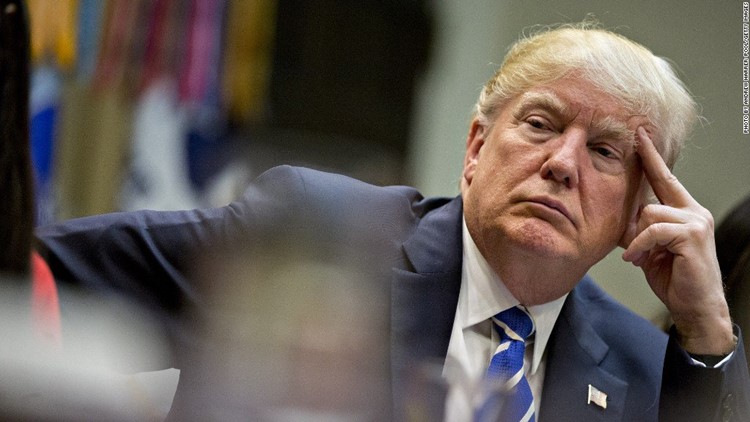WASHINGTON, D.C.– President Trump and his team revealed their proposed tax code Wednesday. Its main theme: major tax cuts for virtually all individuals and businesses.
The plan is still very much a proposal and reads like a blueprint. However, there is a lot going on, so News 8 decided to consult the experts. Click the link above to view our chat with St. Ambrose University’s Dr. Jim Bang, an Economics professor at the school. Dr. Bang breaks down what the tax proposal means for the average American, the impact it will have on the U.S. economy, and the attainability/sustainability of the tax cut paying for itself.
Breaking down the new proposal, the plan eliminates the seven existing income tax brackets, replacing them with three containing new rates of 10%, 25%, and 35%. However, officials haven’t specified which income levels would fall into which brackets.
The plan also doubles the standard deduction that Americans can use to reduce their taxable income. The deduction for married couples moves from $12,600 to $24,000. The Trump administration says this would incentivize people not to itemize their tax returns, instead, using the standard deduction that simplifies the process and potentially saves taxpayers money.
The plan also eliminates the alternative-minimum tax and the estate tax. White House National Economic Council Director Gary Cohn explained, “We don’t think that people should have to do their taxes twice,” adding the estate tax prevented farmers and others from passing along their businesses to the next generation.
To pay for an increase in tax cuts, Trump administration officials plan to eliminate many tax deductions that Americans claim. Cohn says the administration will keep tax breaks that incentivize home ownership, retirement savings, and charitable giving.
For businesses, Trump’s proposal would lower the corporate rate from 35% to 15%, and it would allow smaller businesses to also use the 15% threshold. Secretary of the Treasury Steven Mnuchin said special protections would be put in place to ensure that the 15% rate isn’t taken advantage of by the wealthiest Americans, but he didn’t specify how the White House would ensure this.
The Trump administration is also proposing a one-time tax “holiday” to incentivize companies to bring several trillion dollars being held back into the United States. They didn’t specify what the tax rate would be. A similar “holiday” was allowed in 2004 during the Bush administration. Mnuchin says he “expects that trillions of dollars will come back on shore and will be reinvested here in the United States.” A key part of Trump’s tax plan during the campaign was to create a tax against companies that move overseas and then try to sell their products back to U.S. consumers.
Mnuchin also said White House officials are hopeful their plan could win support from Democrats, but he added Republicans are willing to forge ahead without them if necessary. Representative Cheri Bustos (D-Illinois) says she agrees tax reform is necessary, but that “we need to reform the nation’s tax code to make it simpler and fairer for hardworking families across the country.” She says Trump’s plan won’t do that, arguing, “President Trump is trying to give himself and other billionaires a massive tax break with absolutely no way to pay for it.” Bustos says she is willing to reach across the aisle to reform the American tax code, but says she “cannot support a plan that explodes the national deficit.”
Sen. Chuck Grassley (R-Iowa) disagrees. He says, “President Trump deserves credit for putting out an outline to get the conversation started.” He agrees with the decrease in the corporate tax rate, arguing, “Tax policy ought to help put U.S. job creators at the front of the pack.”
But Sen. Tammy Duckworth is bringing it back to Trump and his unreleased tax returns, saying, “It’s hard to keep track of all the scandals in this administration but the American people should not overlook how the President’s plan would enrich his family and his ultra-wealthy friends while leaving taxpayers with the bill. Without his tax returns, we can’t know just how much the President stands to gain under this harmful proposal.”
So how will the proposed tax cuts be funded? The Trump administration says the cuts will largely pay for themselves over time. However, the independent group “Tax Foundation” estimates that federal revenue will fall by $2 trillion if corporate tax cuts are put in place; the U.S. economy would have to grow by 5% every year for 10 years in order to pay for that.
If passed, Trump’s new tax cuts would only last for 10 years. After then, the cuts expire, unless Congress votes to keep them in place.



